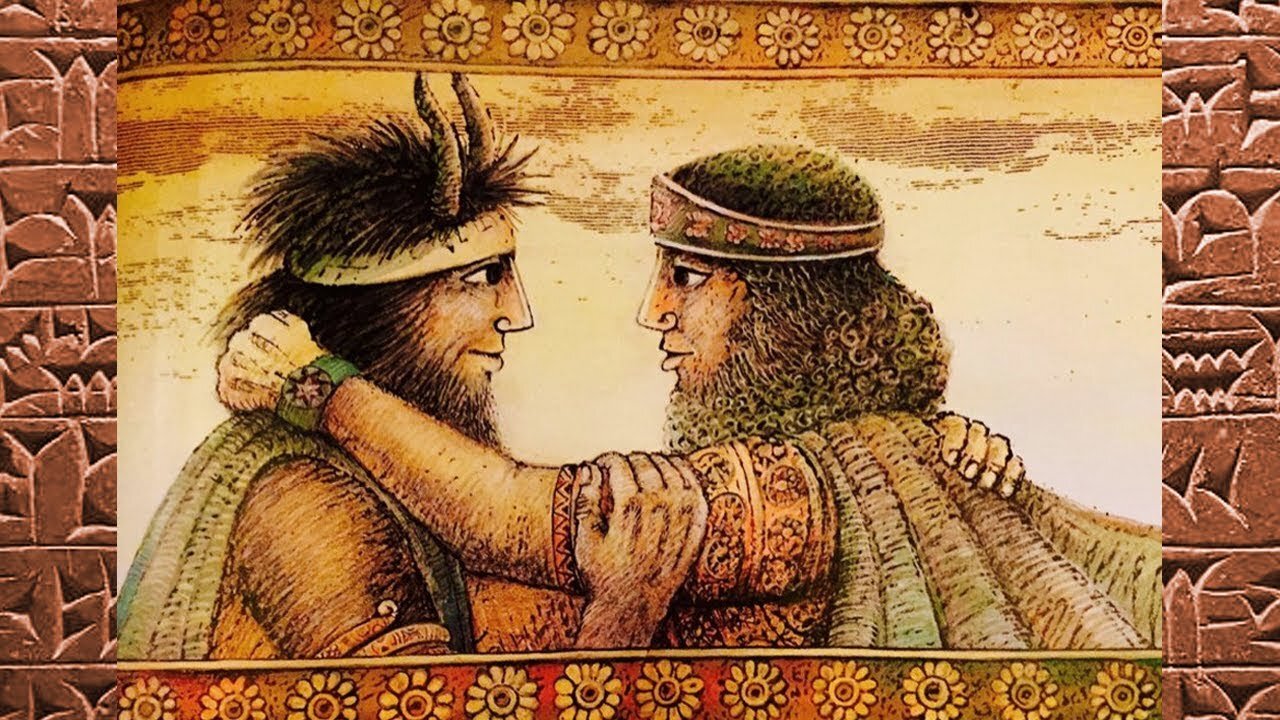Y'all may have to help me out with this one.
“I think of Sisyphus as a hero.” A great psychologist, top leadership expert, and a good friend said this to me the other day on the phone. Sisyphus is of course the guy who rolls a rock endlessly up a mountain, only to have it roll back again, and he has to repeat his task endlessly, with the same result. I had never heard him called a hero. “Really?” was my astute reply. “Yep,” I recall my friend explaining to me. I was surprised. “I’ll have to think about that.” And a day later I called him back to ask for a bit more detail.
Before I go on, I should give you the basic back story of the famous mythological figure. And I’m not making this up. According to ancient sources, a baby boy named Sisyphus was born into money and power that came from his father. He went on to become, like that father, a king. And he came to be known as a greedy, avaricious, self-aggrandizing and deceitful ruler, who often killed those who sought to come into his country. This may be starting to sound vaguely familiar. His only concern was to maintain his own power, and he devoted most of his time and energy to that end. He had a brother he hated and so he seduced the man’s daughter as part of a failed plot to kill him. Two children resulted from the sorry episode, and their mother, the niece Sisyphus had seduced, is said to have killed them both. It wasn’t a happy group of people.
The bad king also made another major error in later on betraying Zeus for his own intended gain. He wasn’t much for respect and loyalty to others. As a punishment, the chief of all gods sent Death to visit the man and put him into chains. But the slippery king was not to be so easily stopped, and he managed to trick Death into showing him how the chains would work, and the Grim Reaper himself ended up locked in place. Zeus, as you might imagine, was not to be thwarted so easily. So he took charge himself and bound Sisyphus to the endless task for which he has become famous. His new life was to push a large rock up a mountain to the top, but right before fully accomplishing the job, the rock would elude his control and roll back down the hill. So Sisyphus would have to start all over again, pushing it back up again fruitlessly, since it would always roll back down, and this would be repeated forever.
We can see here several patterns. One is the cycle of aspiration, striving, near success and ultimate failure. Rinse and repeat. We find it too often in life. Is this the dog chasing his own tail? Is it a metaphor for all of existence? What exactly is it?
When we think of the man now, we tend to envision only this endless end state. The rock. The roll. The return. The redo. And on, and on. The French existentialist philosopher Albert Camus saw this portrayal as emblematic of our condition, viewed as absurd. We strive; we fail. We try again; we fail again. We’re born, we work hard at an education, and then at a life, and when we finally get to the point high enough on this mountain to have some real wisdom, we roll back down and die. And of course, there are religions that tell us we’re then born again to roll that rock back up another hill.
So, I asked my friend, absent all the hideous background information on the mythical character that might these days qualify him as a certain political party’s next nominee for high office: How can he be thought heroic?
He quickly told me about Admiral William McCraven’s excellent graduation speech which has been turned into the book, "Make Your Bed." McCraven talks about Navy Seal Training, and how the first lesson is to make up your bed in the morning and to do it perfectly. That reminded me of a conversation I had with my college roommate many years ago. I asked, “Why don’t you make your bed?” He said, “I’d just have to do it all over again the next day, and over and over. What's the point?” I mentioned the conversation to my wife and she said, “With a lot of people, it’s cleaning the sink, an equally endless task.” Or else, sweeping the floor. Or, you-name-it. Consider for contrastive pondering a parallel: “Why didn’t you eat anything today?” Answer: “I’d have to do it all over again tomorrow. What’s the point?”
Some things are just going to need to be redone or repeated. There are very few actions in our daily lives that are “one and done" forever. But, let’s get back to Admiral McCraven. He says this about making your bed:
<<The wisdom of this single act has been proven to me many times over. If you make your bed every morning, you will have accomplished the first task of the day. It will give you a small sense of pride and encourage you to do another task, and another, and another. And by the end of the day, that one task completed will have turned into many tasks completed. Making your bed will also reinforce the fact that the little things in life matter. If you can’t do the little things right, you’ll never be able to do the big things right.>>
With a lot of great football coaches, regular practice isn’t often about learning fancy plays and developing great strategies. It’s about blocking, tackling, running, and catching. “What are we going to do today, Coach?” – “Block, tackle, run, and catch.” – “What about tomorrow?” – “The same.” When I was an undergraduate, the UNC tennis team was often number one in the country and also known for how much they ran in practice, around and around the track and in wind-sprints. You’d think they were the track team. They’d run and run and run and run. And in a big tournament, near the end, when their opponents could barely move or breathe, they still had gas in the tank, from all that basic, simple, repetitive running.
So I thought about Sisyphus. Not mainly about his greed and deception and awful behavior as king, but about his endless task after those years. And then I saw the connection. Hubris. Pridefulness. Ego. There are endless mountains to climb for the undisciplined grasping ego. Nothing is ever enough. You roll the rock up the hill and then you have to do it again. You’re only as successful as what you’re doing now. Yesterday is gone. The world you always feel a need to impress has just one question: What have you got for me today?
Whether 100 days or 100 months or 100 years into his punishment, even Sisyphus may have gotten the message. The bloated ego can never be satisfied. The desperate quest of getting to the top of the hill never ends.
So let’s imagine our man has had an epiphany, a “mountaintop experience” on one of his trips up, or down. He realizes how foolish he had been, how evil, how duped by his own endless, self-defeating self-deceptions. And he takes a new attitude, maybe like a Navy Seal. Each day, making up the bed perfectly is a task worth doing. It’s a job in which you can take pride. It has a beginning and an end, each time. It doesn't have to lead to anything else to be worth your work. But it most often does, anyway.
But wait. What about rolling a rock? Let's get creative: Does Sisyphus do exactly the same thing every day? Well, on a superficial level, he pushes the rock up for the first time only once, and for the second time only once. He rolls it on Monday, then on Tuesday, and maybe from the front of the hill and perhaps then the side. He may angle it up like the stripe on an old Barbershop pole. It could be that he shoves it all the way with his arms once, then with his shoulder the next trip. He next uses his feet. Maybe he backs it up, inch by inch by foot by yard, or meter, depending on the metrics of Hades. He very likely becomes the best rock roller of all time. Those 10,000 hours are now ancient history. He's the Master. He can do it in so many different ways it’s mind-boggling. He zens out at some times, just feeling his breath and the feet in his shoes, and at other times he sings while he shoves, then maybe recites ancient poetry. He makes up stories. He prepares to sing again, or talk to the birds. You can even hear him at a distance saying, “I dedicate this roll to Hera, for putting up with Zeus.”
Maybe he rolls it because he has to, only until that magic moment when he rolls it because he wants to, and that’s a major change. Perhaps he begins to roll it as an object lesson for all the rest of us, as a cautionary tale on one level, and an inspirational story on another. You can imagine his thought, as he projects it out to us: "No matter how many times this stone rolls down, I’m on it. I’m pushing it back. I won’t be defeated. Ever. And neither should you. You’re as free as your attitude and your choice to persevere. And: So am I. We can push on, as often as it takes. And is it without meaning? Who says? I hereby give it meaning. Watch me."
So. Who is a hero? One who works for the good of others and never just his own narrow ends. A hero engages in arduous or dangerous activity for the sake of other people, for their good, for our benefit. And maybe after a life of the opposite as a king, old Sis finally got the message and changed his tune to do exactly this.
When I was talking to my wife about the rock and the roll, I said, “Can you imagine weeks and months into this business how amazingly fit and STRONG this guy would have become?” She said, “How about the pain?” Yeah, maybe he’d be sore, aching all over. But he’d have the chance to work through it, right? No pain, no gain. Maybe that's a part of it, too. So, yeah, he could have become a strange and powerful hero with the inner judo, the spiritual alchemy that we all often need.
For Make Your Bed: https://amzn.to/36rpE88
The McCraven video: https://www.youtube.com/watch?v=TBuIGBCF9jc































